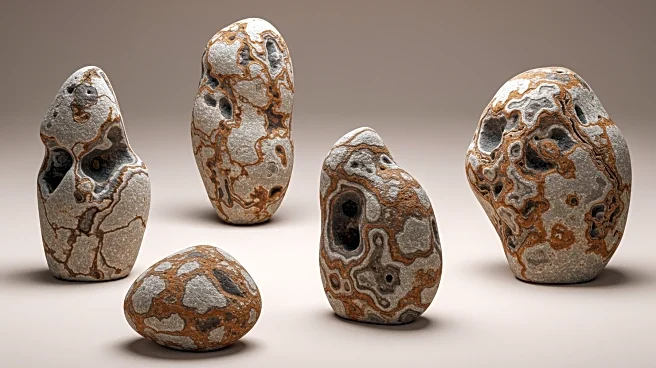What is the story about?
What's Happening?
Charlie Wartnaby from Cambridge, UK, reports on the discovery of anthropoclastic rocks formed from industrial waste on a beach near Workington, Cumbria. These rocks, resembling volcanic sandstone, are seen as a mark of the Anthropocene era, highlighting the impact of human activity on geological formations. The beach where these rocks were found is also home to wind turbines, symbolizing a shift towards sustainable energy practices.
Why It's Important?
The discovery of anthropoclastic rocks underscores the significant impact of industrial activities on the environment, marking a new geological era known as the Anthropocene. This era is characterized by human influence on the Earth's geology and ecosystems. The presence of wind turbines on the same beach offers a hopeful perspective, suggesting a transition towards more sustainable energy solutions. This discovery may prompt further research into the environmental consequences of industrial waste and the potential for renewable energy to mitigate these effects.
















